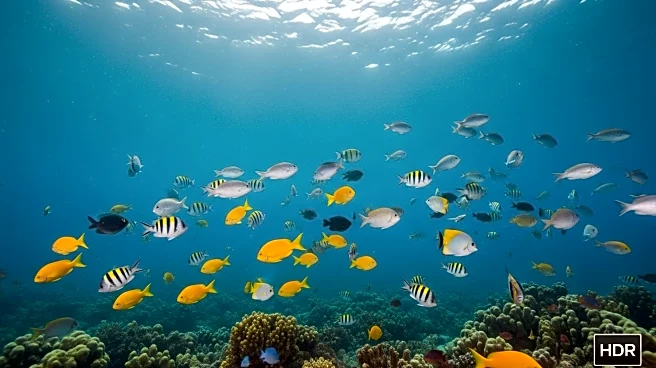What's Happening?
A recent study has found that Brexit has not succeeded in halting the decline of UK fish populations, contrary to promises made during the campaign. The study by Oceana UK reveals that only 41% of assessed fish stocks are considered healthy, with many species like cod and herring being overfished. Despite the UK gaining control over its waters post-Brexit, catch limits have been set too high, allowing overfishing to continue. The report calls for urgent action to end overfishing and implement sustainable practices to protect marine life and the fishing industry.
Why It's Important?
The findings highlight the ongoing challenges in managing fish stocks sustainably, which is crucial for the long-term viability of the UK fishing industry. Overfishing not only threatens marine biodiversity but also the livelihoods of those dependent on fishing. The study underscores the need for evidence-based policies and leadership to ensure that fishing practices do not compromise the health of marine ecosystems. The situation also reflects broader environmental concerns, as the seas face threats from pollution and climate change.
What's Next?
Oceana UK is urging the government to develop a strategy to end overfishing by next year and to establish legal deadlines for rebuilding fish stocks. The organization also calls for an annual audit of fish stocks to be scrutinized by parliament. The government has announced a new fund to support the fishing industry, but effective management and enforcement of sustainable practices will be key to reversing the decline in fish populations.








